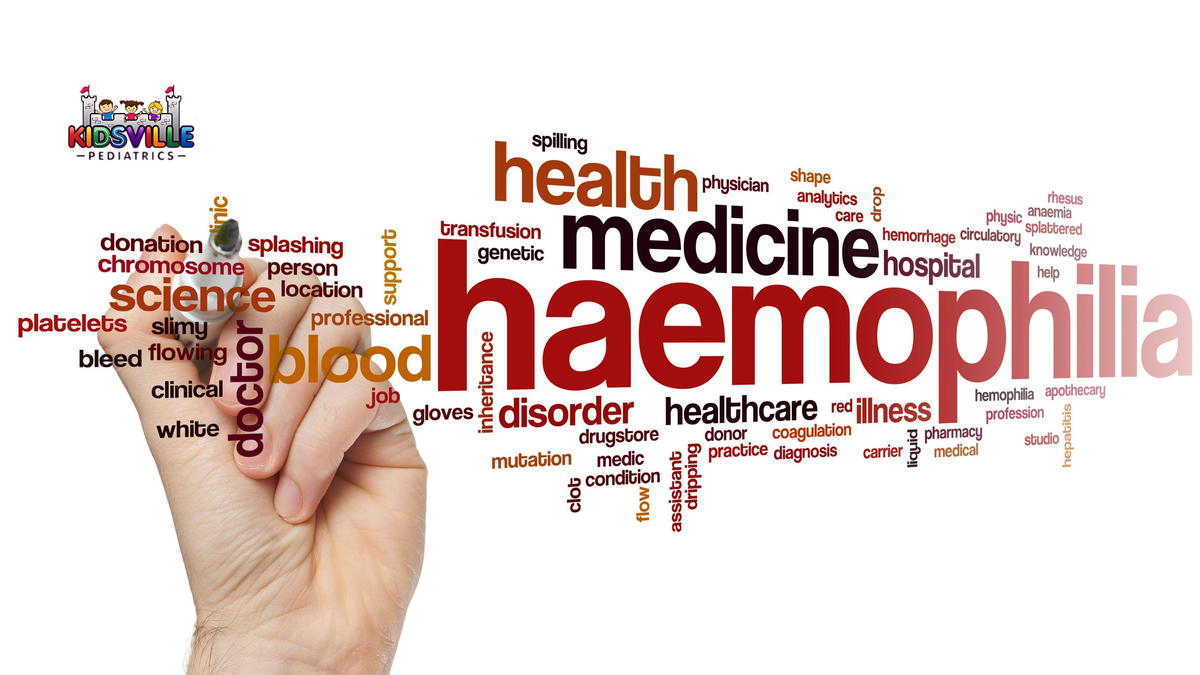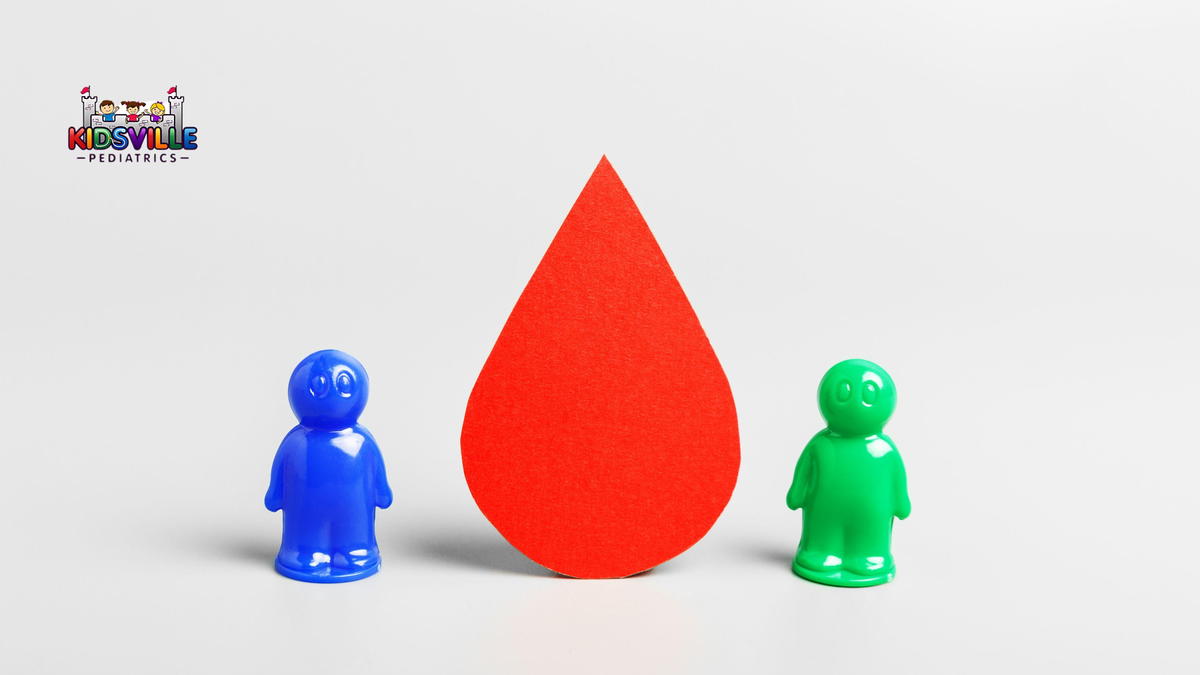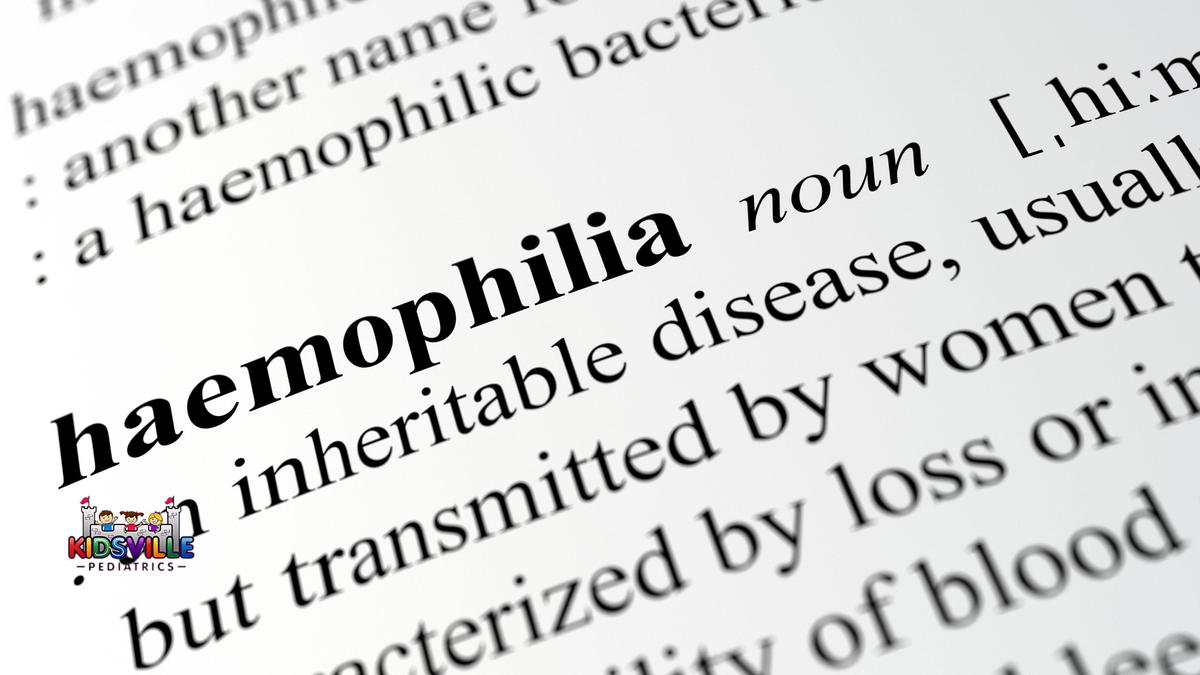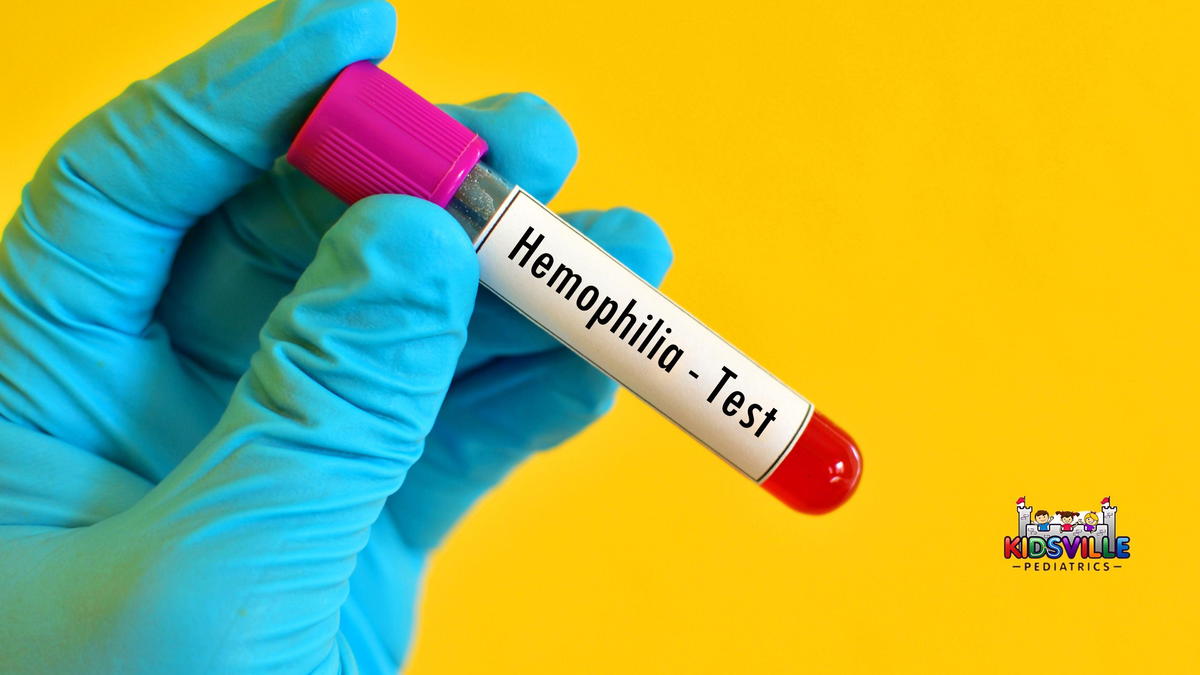
Did you know that Hemophilia Awareness Week is celebrated annually from Thursday, October 10th to Wednesday, October 16th? This important event brings attention to an often misunderstood and rare condition—hemophilia. Raising awareness about hemophilia is crucial for ensuring early diagnosis, access to proper medical care, and fostering a more compassionate, inclusive society for those affected. One of the best ways to stay informed about hemophilia is by working closely with a trusted pediatrician in McKinney, who can provide essential care for your child.
Hemophilia is a genetic disorder that affects the blood's ability to clot properly, which can lead to prolonged and sometimes life-threatening bleeding. While hemophilia may be a lifelong condition, understanding its signs, symptoms, and proper care strategies can significantly improve the quality of life for children diagnosed with this disorder. In this article, we’ll dive deep into hemophilia, covering everything from the basics of the condition to the role a McKinney pediatrician can play in your child’s health and care.
Defining Hemophilia

Hemophilia is a genetic bleeding disorder that occurs when the body lacks sufficient levels of clotting factors—proteins that help the blood clot after an injury. Normally, clotting factors work together with platelets to form clots and stop bleeding. However, in people with hemophilia, these factors are either absent or not present in enough quantity to function correctly. This can result in prolonged bleeding, either externally from cuts or internally in joints and muscles.
Hemophilia is most commonly inherited, meaning it is passed down from parents to their children through genes. It primarily affects males due to the way the gene is carried on the X chromosome. Females have two X chromosomes, which means that even if one carries the hemophilia gene, the other X chromosome can compensate. Males, on the other hand, have only one X chromosome, making them more susceptible to developing hemophilia. However, females can be carriers of the gene and can still pass it on to their children.
The Role of a Pediatrician in McKinney
If you’re a parent with concerns about hemophilia, it’s essential to consult a pediatrician. Pediatricians are often the first line of care for children with hemophilia, as they can assess symptoms, refer you to specialists, and coordinate your child’s overall care. A pediatric clinic plays an important role in early diagnosis and in helping you manage hemophilia effectively.
Types of Hemophilia

There are two main types of hemophilia, each caused by a deficiency in different clotting factors:
Hemophilia A: This is the most common form, accounting for about 80% of all hemophilia cases. It occurs due to a deficiency in clotting factor VIII. Children with hemophilia A will require ongoing medical management to prevent and control bleeding episodes.
Hemophilia B: Also known as Christmas disease, hemophilia B is less common and results from a deficiency in clotting factor IX. Despite the difference in the missing clotting factor, the treatment and management of hemophilia B are similar to that of hemophilia A.
The severity of hemophilia can vary depending on how much of the clotting factor is missing. Hemophilia can be classified into three categories: mild, moderate, or severe. Children with mild hemophilia may experience bleeding issues only after surgery or significant injury, while those with severe hemophilia can experience spontaneous bleeding without any obvious cause.
Early Signs and Symptoms of Hemophilia in Children

Recognizing the early signs of hemophilia is critical for seeking timely care from your pediatrician in McKinney. Some of the most common symptoms that parents should watch out for include:
1. Excessive Bleeding
Children with hemophilia often experience excessive bleeding after minor injuries, such as cuts or bruises. What might seem like a small scrape can result in prolonged bleeding that doesn’t stop as it would in a child without hemophilia. In more severe cases, bleeding can occur spontaneously, without any injury.
2. Frequent and Large Bruises
Bruising is another common sign of hemophilia in children. Kids with hemophilia tend to bruise more easily, and the bruises may appear larger or darker than expected. Internal bleeding in muscles can also cause deep, painful bruises that may take a long time to heal.
3. Joint and Muscle Bleeding
One of the more serious complications of hemophilia is internal bleeding into the joints and muscles. This can cause pain, swelling, and stiffness, particularly in areas like the knees, elbows, and ankles. If left untreated, repeated joint bleeding can lead to permanent joint damage or arthritis. Working with a pediatrician McKinney TX expert can help manage these symptoms and prevent long-term complications.
4. Frequent Nosebleeds and Gum Bleeding
Children with hemophilia may experience frequent nosebleeds that are difficult to stop. They may also have prolonged bleeding from the gums after losing a tooth or during dental procedures. A pediatrician in McKinney can provide advice on how to manage these situations.
5. Prolonged Bleeding After Surgery or Vaccinations
A child with hemophilia may experience extended bleeding after routine procedures such as vaccinations or dental work. This occurs because their body is unable to form proper blood clots at the site of the procedure. If you notice prolonged bleeding after medical treatments, it’s important to consult your pediatrician in McKinney immediately.
Diagnosing Hemophilia in Children

If you suspect that your child may have hemophilia, or if hemophilia runs in your family, early diagnosis is crucial. A McKinney clinic can conduct initial evaluations and refer you to a hematologist for more in-depth testing.
Blood Tests
Blood tests are the most common method used to diagnose hemophilia. These tests measure how well the blood clots and the levels of specific clotting factors. Based on these results, your pediatricians can determine whether your child has hemophilia and, if so, the type and severity.
Prenatal Testing
In families with a known history of hemophilia, prenatal testing is sometimes offered to determine whether a baby will be affected. Tests such as amniocentesis or chorionic villus sampling (CVS) can detect the presence of hemophilia before birth, allowing parents to plan for appropriate medical care once the baby is born.
Caring for a Child with Hemophilia

Managing hemophilia involves a combination of medical treatments, preventive measures, and lifestyle adjustments. With the support of the Kidsville Pediatrics McKinney team, your child can lead a healthy and active life while managing the challenges of hemophilia.
1. Clotting Factor Replacement Therapy
The cornerstone of hemophilia treatment is clotting factor replacement therapy. In this treatment, the missing clotting factor (either factor VIII or IX) is administered intravenously. This helps control bleeding episodes and prevent future incidents. For children with severe hemophilia, regular prophylactic treatment may be necessary to maintain a normal level of clotting factors in their bloodstream. Your pediatrician in McKinney can coordinate this treatment with specialists and ensure your child receives the care they need.
2. Preventing Bleeding Episodes
Children with hemophilia are more prone to injury and bleeding, so it’s important to take preventive measures. Working with a pediatrician, you can create a safe environment for your child that minimizes their risk of injury. Some common preventive measures include:
Wearing protective gear during physical activities, such as helmets and knee pads.
Avoiding contact sports like football or wrestling, which could cause joint or muscle injuries.
Child-proofing the home by removing sharp objects and hazardous furniture to prevent accidental injuries.
3. Managing Bleeding Episodes
When bleeding occurs, it’s essential to take immediate action. Resting and immobilizing the affected area, applying ice to reduce swelling, and administering clotting factor therapy can help manage bleeding. If a severe bleeding episode occurs, contact your pediatrician in McKinney for guidance.
4. Physical Therapy
For children with hemophilia who experience joint bleeding, physical therapy can help maintain joint health and mobility. A McKinney pediatrician may refer your child to a physical therapist who can design a customized exercise program to strengthen muscles and reduce the risk of joint damage.
5. Emotional and Psychological Support
Goes without saying that having hemophilia can be emotionally grueling for children. They may feel different from their peers or be anxious about potential bleeding episodes. Offering emotional support and connecting your child with a counselor or support group can help them cope with the condition. Your pediatrician in McKinney can also provide resources to help your child navigate the emotional aspects of hemophilia.
Pediatrician Near Me: Kidsville Pediatrics McKinney
To effectively manage hemophilia, it’s essential to have a team of healthcare professionals, including a hematologist, physical therapist, and dentist. A pediatrician plays a vital role in coordinating this care and ensuring that your child receives comprehensive treatment for their condition.
Hemophilia may be a lifelong condition, but with the right care and support from a pediatrician in McKinney, your child can still live a fulfilling and active life. By recognizing the signs and symptoms early, implementing preventive measures, and working closely with healthcare professionals, families can manage hemophilia effectively.
As we celebrate Hemophilia Awareness Week, take this opportunity to learn more about the condition, advocate for better access to care, and offer support to those living with hemophilia. Together, we can ensure that children with hemophilia receive the care they need and deserve, helping them lead healthier, happier lives.
Click to Schedule An Appointment. Or visit/call our clinics: Kidsville Pediatrics Mansfield TX: 682-341-3910; 1759 Broad Park Circle S, Suite 201 & 205, Mansfield, TX Kidsville Pediatrics Southlake: 682-345-8010; 2813 W. Southlake Blvd Suite 100 Southlake, TX Kidsville Pediatrics McKinney: 469-885-9400; 5881 Virginia Pkwy. Suite 300 Mckinney, TX |
